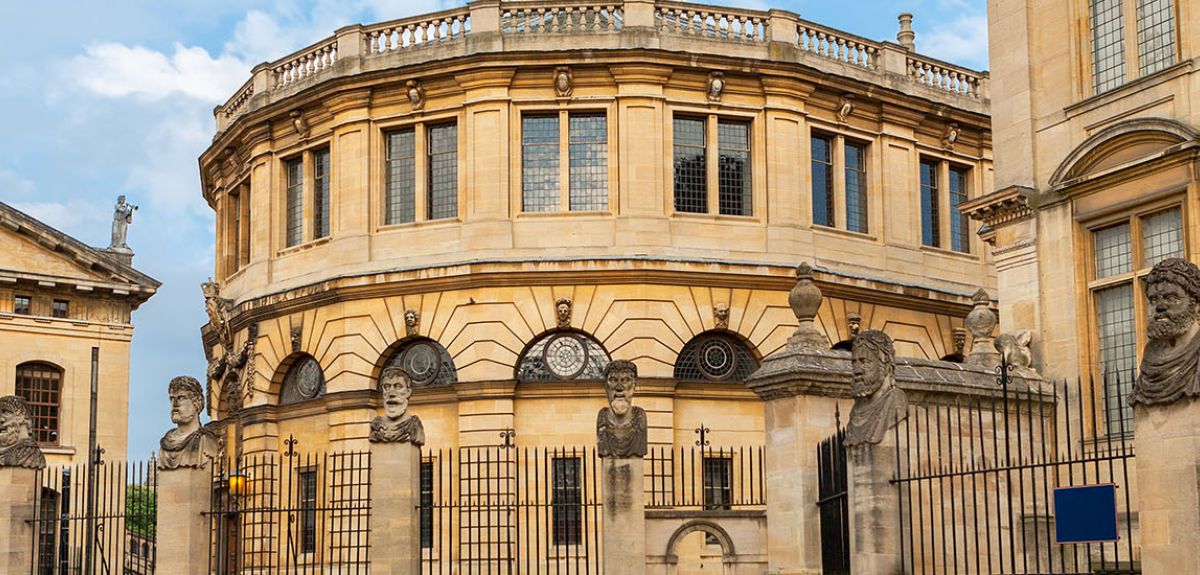
Acoustician appointed to develop world-class concert hall at Oxford University
Oxford University has appointed a specialist acoustician to help create a new concert hall to rival the best in the world.
The 500-seat concert hall will be part of the University’s Stephen A. Schwarzman Centre for the Humanities, which has been made possible by a £150 million gift from Stephen A. Schwarzman, chairman, CEO and Co-founder of Blackstone, one of the world’s leading investment firms.
The appointed acoustician is Ian Knowles of the global engineering and consultancy firm Arup. Mr Knowles has previously been responsible for the outstanding acoustics at venues including Milton Court at the Barbican for the Guildhall School of Music & Drama, the Stoller Hall for Chethams School of Music and Hallé St Peter’s in Manchester. He also specialises in broadcast and orchestral recording facilities, having led projects for the BBC and Sky.
Mr Knowles and the acoustics team at Arup will help to develop the Centre’s 500-seat concert hall and 100-seat “Black Box” lab for experimental performance. These venues, along with a 250-seat performance venue, will host performances from world-renowned musicians and performing artists, national and international touring groups, Oxford University student and faculty groups, regional and national arts ensembles as well as local schoolchildren.
Professor Karen O’Brien, Head of Humanities at Oxford University, said: “Building a new, world-class concert hall in Oxford is a statement of our confidence in the value of the arts and humanities despite this time of great uncertainty. This appointment will ensure that the Schwarzman Centre attracts the world’s very best musicians, artists and performers. The quality of the acoustics will benefit student performers and local cultural organisations who will use these venues, and the wider public who will attend performances.”
The high-quality acoustics of the concert hall will allow for the performance of a wide spectrum of acoustic music, ranging from solo recitals and small-scale chamber music right through to chamber orchestra with dozens of musicians.
The Black Box performance lab will accommodate amplified music through the ability to vary the acoustic and will provide a home for a wide range of musical genres in an intimate setting. It will be used for innovative, intimate public performances which bring Oxford’s research to life, and to support musicians to compose and perform electroacoustic and experimental music. The space will also be used for drama and dance performances.
Dame Hilary Boulding, President of Trinity College at Oxford University, Chair of the Briefing Group for these performance spaces and former Principal of the Royal Welsh College of Music and Drama, said: “I am absolutely thrilled at the appointment of Ian Knowles to design the acoustic of these new performance spaces. Ian has an enviable track record for creating exquisite performance acoustics which attract the leading artists from across the world to perform in them. But he also understands the needs of young emerging artists still in training and formal education and he manages to combine the needs of both at the highest level. With purpose-built facilities and excellent acoustics, these new performance spaces will transform the concert life of Oxford.”
Ian Knowles, Director of Acoustics UK at Arup, said: “Our team at Arup is absolutely delighted to have been selected for this incredible project. It is a privilege and honour to be part of shaping the cultural life of such an historic and culturally important town through delivering a new venue with an acoustic which will attract visitors and performers from across the globe. To provide the means to allow societal enrichment, as well as facilities to support the development of the next generation of musicians and performers is a cornerstone of cultural sustainability and lands firmly at the heart of Arup’s aspirations.”
The Centre will be located on the University’s Radcliffe Observatory Quarter site, near the Woodstock Road. The Centre will provide a new home for Oxford’s humanities with state-of-the-art facilities for research and teaching, a dedicated hub for engagement with schools, a new Institute for Ethics in AI, a new Humanities Library, and much-needed space for Humanities graduate students and researchers. Subject to planning permission, it is hoped that the building will open in the academic year 2024/25. More information about the Schwarzman Centre for the Humanities is available here: https://www.schwarzmancentre.ox.ac.uk
 Expert Comment: Chatbot-driven sexual abuse? The Grok case is just the tip of the iceberg
Expert Comment: Chatbot-driven sexual abuse? The Grok case is just the tip of the iceberg
 New study finds that stopping weight-loss drugs is linked to faster regain than ending diet programmes
New study finds that stopping weight-loss drugs is linked to faster regain than ending diet programmes